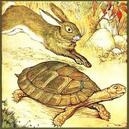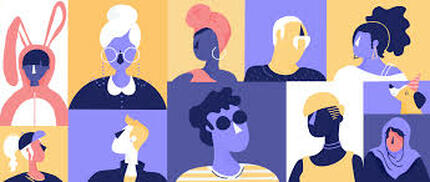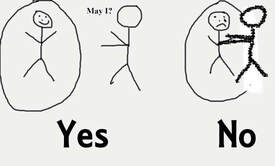 I’ve been writing a series of blog posts about my experiences as a young hippie mother in the mid-70s, and it made me realize again how important our stories are to our children and grandchildren. I often lament the fact that I didn’t record the stories my mom and dad told. I remember some of them but not nearly enough to satisfy me. I have to admit that many of the stories from my younger days are not appropriate for younger children to read. I’d rather not give them any ideas. But there are plenty that are fine to tell, especially ones from when I was the same age as they are now. When my children were at certain ages, I thought a lot about my life at that age. So, why not tell them those stories? We should share the stupid things we did, the mistakes we made, the times we were heroic and the times we were cowards. It’s important for our kids to see us as human and not superheroes. When we look perfect, it sometimes feels too hard for them to live up to that height. I remember my daughter saying to me, when she was a young mom, that she didn’t think she could ever be as good a mom as I was. That made me feel so sad, and I started sharing my failures with her. As a teacher in The Albany Free School, when talking to a student who had done something wrong, I would always share similar things that I had done wrong. I was not bad at the time, just making a mistake, the same as them. It’s important for children to know that we all make terrible mistakes sometimes, but we can change our ways and even atone for our transgressions if necessary. There’s always room for change. There are funny stories and tragic stories. I have told my children and grandchildren about the time I stood up for a friend and was beaten up by a girl gang for it. Those girls kept after me, causing me to hide out. Later, my mother, who knew the leader’s deceased mother was very friendly with this nemesis of mine, causing me to feel very angry and betrayed by my own mom. What I soon learned was that my mother’s kindness to this very hurt girl caused her to look at me in a different way, and I was never bothered again by her. I learned a lesson that I could then pass on to my own kids and grandkids through an interesting story. We all have our own stories and our own lessons learned. We often try to tell our kids to behave a certain way because we’ve already learned that lesson, so they don’t have to go through it again. But if we don’t then tell them the story, they probably won’t listen. In storytelling, they are entertained, and the lesson sticks. Think of Aesop's fables. How many of us remember those stories and the morals at the end? I know I remember many of them. “Slow and steady wins the race.” “Look before you leap.” “Birds of a feather flock together.” “Count not your chickens before they are hatched.” And the list goes on and on. Why do we remember them? Because they had stories to lead in to those important lessons. So, please keep telling your stories, even the ugly ones.
0 Comments
My daughter suggested that I write a post about the importance of introducing your children to a diverse group of people. I hadn’t much thought about the effect our diverse group of friends and acquaintances had on her childhood until then. She explained to me that it was one of the most important things that made her accepting of all kinds of people. She grew up in a very unusual environment, being exposed to lots of hippies but also homeless folks, tons of musicians and artists and people from many cultures and sexual orientations. Looking back on it, I see how that shaped her perspectives on the world, and I wish more people had those experiences.
There was recently a Drag Queen story hour at one of our local libraries. I have no young children in my home anymore and didn’t go, but I would have taken my kids to it. In my daughter’s town of Greenville, North Carolina, there was a huge uproar when they held the same type of event. I don’t understand why people who were opposed to it, felt as though they needed to get so upset. Just don’t bring your children. But, there were enough threats made that they had to have police protection. We have entered a new phase in our country, one of acceptance but also one of violent rejection. The best way to push back against the negativity is to support and celebrate the differences around us. People are finally feeling safe enough to come out of the closet, lots of different closets. I always encourage parents in my music classes to expose their children to a wide range of musical styles because we have no idea what they will end up liking. We don’t want them to rebel against the things we love, so we encourage them to hear everything. I’ve met young children whose parents don’t listen to classical music, but that is what they ended up loving. I was raised Catholic and, like so many others, I turned my back on the Catholic Church, never looking back. I introduced my own children to a wide variety of religions, encouraging them to choose for themselves what made the most sense in their spiritual lives. Shouldn’t we be doing the same thing with lifestyle choices? We can’t change who our children are born to be, and we don’t necessarily know what that is right away. If we raise them in a static environment and they don’t fit into that mold, they will end up feeling lost. I know that I did, and it took me a long time to find my rightful place in the world. Let’s do our children a huge favor and show them their limitless possibilities without encouraging or discouraging any specific road. I often start my posts with the phrase, “This is such an important topic.” And, I suppose they all are. This is one I’ve struggled with for a long time both as a mother, a teacher and as an adult dealing with other adults who never learned this important lesson. I once had a close male friend who always stood too close making everyone uncomfortable. We were at a party once, and he came in way too close pinning me up against a wall. I pushed him back forcefully and drew an imaginary line around myself. I said, "You are not allowed to go beyond this line without my permission! Understand?" The people in the room applauded and hooted approval. I was sorry that I had embarrassed him but glad that the issue never came up again.
We want our children to be loving and physically affectionate, but we also want them to be respectful and aware. When my own children were babies, I noticed that our cats and dogs had a great sense of this. I worked hard at teaching my kids to be respectful of the animals, but I didn’t hover over them watching every move. My pets tolerated a lot from the babies until they started walking. Once they were on their feet, all bets were off. The cats gave a warning first by hissing then, if the warning went unheeded, they scratched. They didn’t seriously injure the kids, they just let them know that they needed their space. My dogs never bit my kids but did growl and bare their teeth occasionally. One of them even nipped my son slightly when he poked her in the eye with a toy after many warnings. Although I always tried to prevent things from going that far, I learned that sometimes experience is the best teacher. I teach families with children that range in age from infancy up to and including 4-years old. The older ones are always interested in the babies. Of course, why wouldn’t they be? They’re like living, breathing dolls. However, they are sentient beings with feelings, taking in everything around them. I always try to encourage parents of babies to ensure their babies’ enjoyment by protecting them from well-meaning “smotherers”. We all know these children. They’re the ones who want to love you so much that they are right in your face, hugging, touching and preventing any stimulus from anywhere else. These children mean well. They are doing it out of a place of love and wonderment, but they are doing the baby a huge disservice. When encountering this behavior in class, I try to gently talk to the older child explaining that I want the baby to be able to enjoy the class in his or her own way. I tell them, not in these words, that they get to show the baby how to do the activities by participating rather than loving them to death. That doesn’t always work. Then I have to turn to both sets of parents and get them on board. It seems to me that this should be instinctual, but I’ve realized that we all behave differently in public. As a parent, I was often worried about the judgement of other parents, never sure if I was doing the job right and often worried that I was overstepping my bounds with someone else’s child. We can teach our children to ask for hugs instead of expecting that everyone is willing. We can teach them not to touch a baby’s face or grab their hands but touch their feet or gently stroke their legs or tummies instead. Most importantly, we need to teach them to accept no for an answer. And, we need to consistently reinforce these messages. So many things have to start at home. Our babies are learning all the time. They are experimenting with their voices and their bodies. If we laugh at everything they do, even if it could be harmful later on, we’re encouraging that behavior. Some things are very cute when they’re young but not so cute when they get older. If we accept our little one’s hitting when it doesn’t have enough force to hurt, how will they know that it’s not acceptable behavior? If they screech when they’re tiny, they will screech when they’re older. We can gently say, “Ow, that hurts my ears. Can you do it softer?” Then we model that softer tone. You can even whisper, which is a sound most babies love. A young baby may not understand, but we’re still relaying the message. Eventually, it will stick. We can say things like, “Please don’t hit me. Hitting hurts.” “That’s such a tight hug, can you try hugging me a little gentler?” We can use terms such as “soft touch.” I’ve never liked the term “nicely.” It implies that you’re not being nice. Maybe the intention is one of being nice, but there is too much force behind it. If we keep delivering the messages of kindness and respect and model those things ourselves, our children will learn them quickly. I’ve encountered nursing mothers who are reluctant to stop their babies from biting because they don’t want to traumatize them. It hurts when your baby bites you while nursing. With every one of my babies, I sharply and loudly said, “Ouch,” and removed them from my breast immediately. Did they cry? Yes, they did. But I soothed them and explained that it hurt me, and eventually they stopped biting me. I’ve seen mothers with serious cases of mastitis continue to nurse their older children with tears streaming down their faces. That kind of self-sacrifice is detrimental to children. It is not teaching them personal limits. All of us will have disappointments and hurts in our lives. We need not to avoid them but learn how to cope with them and move on. The flip side of this topic is teaching them how to protect their own personal space, how to speak up for themselves and how to recognize their discomfort in situations. This can also be difficult for parents to navigate. We want them to take care of themselves but also need to provide protection where needed. Ideally, a child will ask another child before grabbing them for a hug. This will not always be the case, but it can be taught. Although, I think it’s important for all children to learn to use words to express themselves, sometimes they need to be physical, pushing another child away or wresting free from their grip. Younger children need us to watch and help them where needed. Some kids are biters. These biters always seem to do it when they feel trapped or hemmed in. As a preschool teacher, I often saw a child backed into a corner bite the child that was blocking their way. It wasn’t done out of aggression as much as from panic. Some children struggle with chaos. They will also act out from a sense of panic. They can be taught how to avoid those situations or how to find a way to keep themselves feeling safe in the midst of chaos. This subject is too vast to address everything is this one post. Please ask questions or leave your own thoughts here. I think it’s something that most of us struggle with in one way or another. Every child is different, and we can all help each other. Remember, it really does take a village to raise a child. Listen to other parents and grandparents and ask for their thoughts. It affects all of us in one way or another. |
Archives
April 2019
Categories |



 RSS Feed
RSS Feed